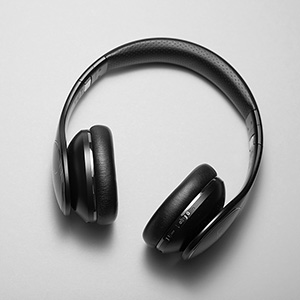In late 2003, just two years after 9/11, The OaKs's Ryan Costello sold everything he owned, joined a humanitarian organization and moved to Afghanistan. Costello lived there for two years, working in the Central Afghan mountains with returned refugees, teaching them creative agricultural techniques and becoming fluent in their native language, Farsi. Late at night, while the dust storms blocked out the stars and rattled the windows, he would sit and work out impressions of what he had seen an...
In late 2003, just two years after 9/11, The OaKs's Ryan Costello sold everything he owned, joined a humanitarian organization and moved to Afghanistan. Costello lived there for two years, working in the Central Afghan mountains with returned refugees, teaching them creative agricultural techniques and becoming fluent in their native language, Farsi. Late at night, while the dust storms blocked out the stars and rattled the windows, he would sit and work out impressions of what he had seen and heard that day on his acoustic guitar.After returning to the United States, Costello joined back up with his long-time creative and song-writing partner Matthew Antolick, who was drumming full-time in a Moroccan band. Antolick and Costello began working out Costello’s melodic ideas and lyrical concepts, home-recording in Antolick’s apartment what eventually became Our Fathers and the Things They Left Behind. Exploring themes of self-sacrifice and introspection over roots-folk and jazzy melodic layers, Our Fathers... was an original breath of fresh air for independent music.The release of Our Fathers... drew immediate attention to The OaKs in Orlando's press and music scene, and the attention quickly went national as Paste magazine featured Costello and The OaKs in their July 2007 cover story "Can Rock Save the World." The OaKs also partnered with Global Hope Network on the release of Our Fathers...and agreed to donate 50% of the profits from each CD or track download from that album to aid widows and recently-returned refugees from Afghanistan.Costello and Antolick immediately realized the difficulty of translating their multi-tracked compositions into a live setting with just a duo, and began working to put together a band of diverse musicians who could make the compositions come to life on stage. They were joined by Jeremy Siegel, a classically trained bassist steeped in Led Zeppelin and Bootsy Collins riffs, and also fluent in classical and jazz trombone. Tim Cocking came next - a piano major and audio engineer who's as dexterous on his trumpet as he is on his keyboard and accordion, and Greg Willson, a seminary student wielding a mandolin and electric guitar and who played the breathiest Stan Getz-style saxophone they had ever heard. Their lineup was completed shortly thereafter by Melissa Reyes, a singer-songwriter whose alto voice and folk harmonies complemented perfectly with Costello’s high vibrato. From the first guitar riff at their debut show on stage at the 2006 Anti-Pop Music Festival, it was apparent that they were meant to be making music together – the energy in the room was electric, and the reviews were raving.Out of this natural chemistry was born many new songs over the winter of 2006/2007. Inspired by the unique talents of each member, Costello and Antolick began writing songs that would showcase the bands rhythmic tightness and diverse instrumentation. Lyrically, Costello delved into themes of spirituality in the midst of brokenness, of longing and searching, and continued to explore the previous album’s themes of social justice and self-sacrifice. The OaKs honed these tracks in the living room of Costello’s wood-floored 1950’s style house, and at live shows across the state, until the musical complexity and rhythmic tightness of the music exceeded anything they had created before.In late July of 2007, Costello put in for part-time employment at his social work job and the OaKs began recording Songs For Waiting. Using the warm, full sound of Costello’s old house, they determined to use no artificial reverb on the new album, instead using room mic’ing techniques to mix the elements together in the style of their favorite 1960’s jazz and rock albums. Even synthesizers were played through amplifiers and speakers and run into the room to give them the woody ambience of Costello’s house. Over the next few months The OaKs employed trumpet, trombone, sax, Hammond organ, bells, synths from the 70’s and 80’s, acoustic and classical guitars, electric and acoustic bass, a plethora of shakers, tambourines, and hand-drums, and a Wurlitzer electric piano from 1959.In mid October Antolick, Costello, and keyboardist Tim Cocking began mixing the new album. Using as few modern mixing tricks as possible, including no artificial reverb or delay, they carefully arranged each song. Throughout the mixing process they were mentored and guided by Alan Douches of West West Side Music, who’s hand has been on great recordings from Paul Simon’s Graceland to Grizzly Bear’s Yellow House and Sufjan Steven’s Illinois.Finally, after over four long months, the OaKs’ Songs For Waiting was finished on November 8, 2007. The new album is scheduled for release on March 4, 2008.
show more...